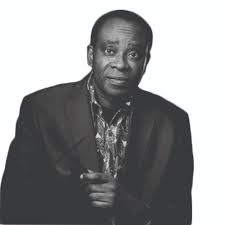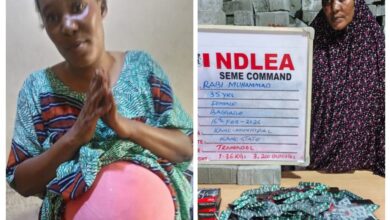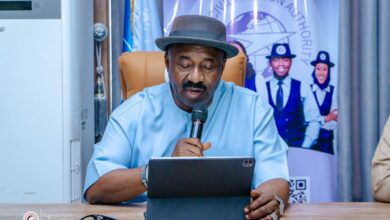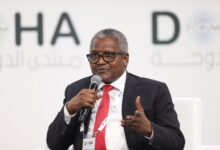
By Dafe Favour
A representative of Civil Society Organizations (CSOs) in the country, the Health of Mother Earth Foundation (HOMEF), has faulted Nigeria’s alignment with (and support for) the Beyond Oil and Gas Alliance (BOGA), arguing that it was hypocritical for the country to back the alliance, while at the same time declaring that it was not yet ready to fully transition from fossil fuels extraction.
HOMEF expressed concerns that the second day of ACS2 was animated by numerous side events hosted by governments, intergovernmental bodies, civil society groups and international initiatives. Among them were two sessions organized by the Nigerian Council for Climate Change (NCCC), the Government of Kenya, European Union and Beyond Oil and Gas Alliance (BOGA).
The events tagged: African Leadership on Orderly, Just and Equitable Transition Away from Oil and Gas and Partnerships for an Orderly, Just and Equitable Transition Away from Oil and Gas, were billed as opportunities to showcase leadership on the transition away from fossil fuels.
The sessions highlighted national and regional strategies for moving away from fossil fuels, with Nigeria and Kenya sharing their domestic efforts. At the same time, the EU and BOGA outlined their support mechanisms for governments navigating the energy transition. Yet what should have been straightforward policy discussions soon revealed deep contradictions at the heart of Nigeria’s climate posture.
Director-General of NCCC, Mrs. Omotenioye Majekodunmi, announced that Nigeria had been accepted into the BOGA Fund. For many in civil society, this announcement was jarring, given Nigeria’s earlier declaration in the year that it intends to restart oil exploration in Ogoniland, a region long devastated by pollution and displacement linked to fossil fuel extraction.
For civil society, the dissonance is glaring: BOGA was established to accelerate a phase-out of oil and gas, yet Nigeria continues to champion a “phase-down” model, signaling no intention to set a Paris Agreement-aligned date for ending fossil fuel operations as required by BOGA. At COP28, Nigerian officials were explicit that a phase-out of fossil fuels,” is not in line with Nigeria’s position,” insisting instead on prolonging oil and gas exploitation under the guise of cleaner emissions.
The paradox is plain. How can a country commit to new oil drilling while simultaneously joining a global initiative premised on ending such expansion? Unless there has been a substantive policy shift that has gone unannounced, civil society is left asking whether BOGA is diluting its own principles, or whether the NCCC’s declaration is more symbolic than structural.
For communities in the Niger Delta and for global observers, this inconsistency undermines both Nigeria’s credibility and BOGA’s mission.
On the politics of ‘Orderly’ in transition language, HOMEF argued that “Equally troubling was the framing of the side events themselves. The inclusion of the word ‘orderly’ in the event titles drew scrutiny from civil society organizations, which have long warned that such language had often concealed an agenda of delay.
“When pressed to clarify, a COP30 presidency representative responded that “language shouldn’t distract us from taking the necessary steps towards the transition.” However, for frontline communities, words are not distractions; they shape priorities, policies and the flow of finance.”
In a statement made available to journalists, Media and Communications Lead, ‘Kome Odhomor, quoted Executive Director of HOMEF, Nnimmo Bassey as saying: ”Formulations are key as they drive mindset, policies and investments. Gradualism is virtually the same as permitting convenience to be the rule, just as with voluntary Nationally Determined Contributions (NDCs). Justice is not a gradual thing. No gradualism when you are drowning or licked by roaring flames.”
Also, Programmes Manager at HOMEF, Dr. Mfoniso Xael, who posed the question during the session, echoed the concern that: “Orderly” risks being the code for delay. It could mean gradual, cautious or slow change instead of the urgent phase-out needed. It risks locking in decades more extraction, preserving oil revenues at the expense of frontline communities, and placing control in the hands of fossil fuel producers rather than grassroots actors.”
For civil society, these two developments-Nigeria’s contradictory positioning within BOGA and the careful insertion of “orderly” into transition discourse-are not separate issues but symptoms of the same dynamic: a global energy debate where fossil fuel interests continue to bend language, institutions, and timelines to their advantage. Justice, however, cannot wait. The climate emergency demands clarity, honesty, and above all, urgency. Justice cannot be disguised as gradualism.











2n0wch
jy5adb